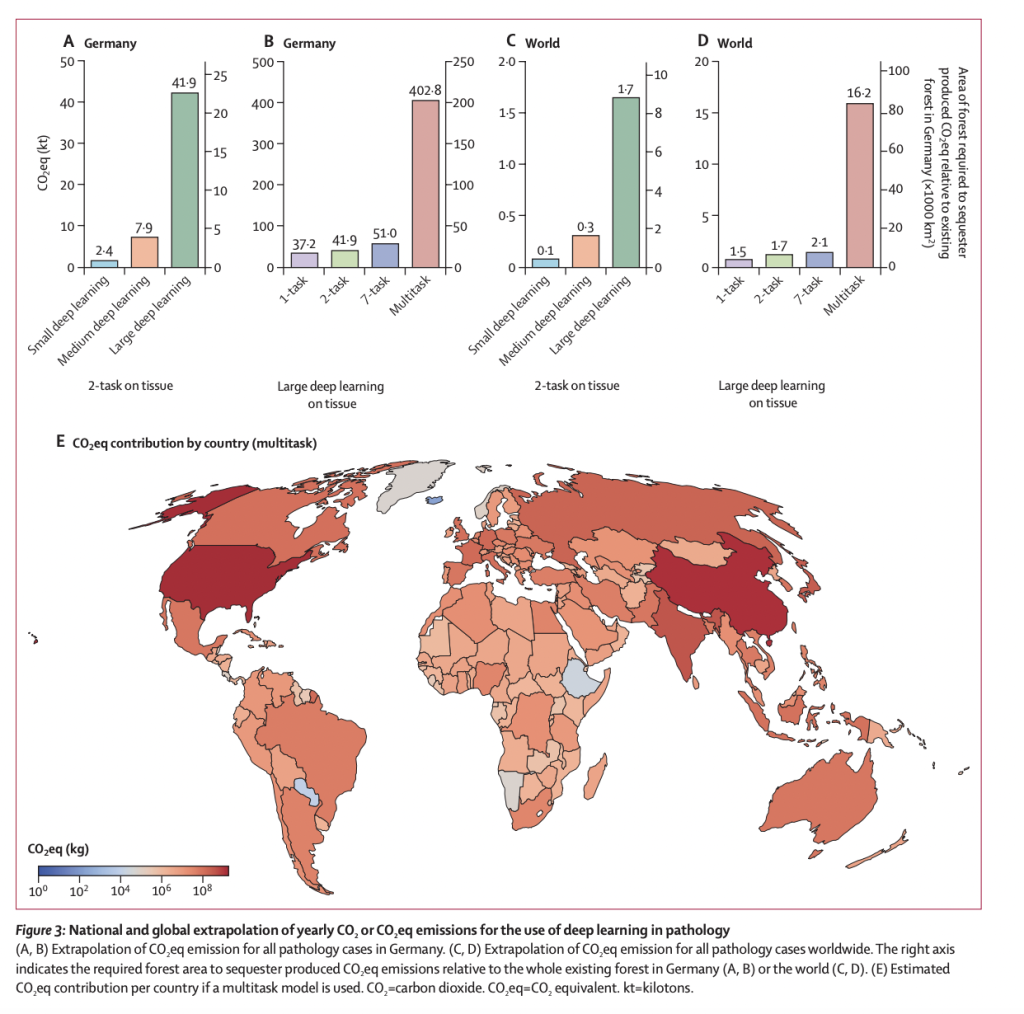The study explores the environmental impact of deep learning in pathology, advocating for the use of simpler models and model pruning to reduce CO2 emissions. Strategies include minimizing data inputs and selecting specific tissue regions. Findings suggest pruned models maintain accuracy while offering sustainability, promoting a balance between technological growth and ecological care in healthcare innovation.

“`html
Utilizing AI Sustainably in Pathology
Concern: The adoption of deep learning in medical fields is increasing CO2 emissions, posing environmental challenges.
Practical Solutions for Sustainable AI:
- Opt for Simpler Models: Choose less complex deep learning models to reduce energy use.
- Model Pruning: Enhance efficiency by cutting out unneeded parameters without sacrificing performance.
- Streamline Data Input: Use AI to detect unnecessary data, focusing only on essential regions of medical images.
Value of Simpler Models:
Simpler AI models have shown to perform on par or better than larger ones in certain medical tasks while also reducing CO2 emissions.
Sustainability Through Model Pruning:
Pruning up to 40% of a model can retain accuracy and lower emissions by 20-30%.
Conclusion:
The research advocates for sustainable deep learning practices in pathology that don’t compromise on efficiency and performance.
Stay Updated: Join communities like the ML SubReddit, Facebook Community, Discord Channel, and Email Newsletter for the latest in AI.
Support and Insights: For personalized KPI management and AI solutions, contact hello@itinai.com, and follow us on Telegram and Twitter.
Spotlight on AI Sales Bot:
Automate customer engagement with AI Sales Bot. Available at itinai.com/aisalesbot.
Attribution: All credit for the research goes to the original researchers.
“`
List of Useful Links:
- AI Lab in Telegram @aiscrumbot – free consultation
- Balancing Innovation and Sustainability: A Pragmatic Approach to Environmental Responsibility in Deep Learning for Pathology
- MarkTechPost
- Twitter – @itinaicom

























